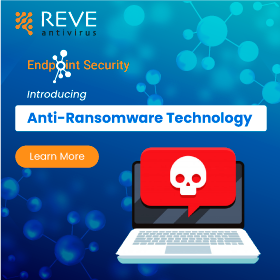“Pandemic”, “Coronavirus”, “COVID-19”, these might be the most used words, both on and offline during the last couple of years. Our world is passing this difficult time. However, as the Chinese Strategist Sun Tzu said in his famous book The Art of War – “In the midst of chaos, there is also opportunity”, the shift from working at the office to work from home is an enormous change that took place recently. This pandemic has really forced the shift of all the offices to the home offices on a massive scale. A study suggests, one in three companies had to switch to 80-100% of their workforce to start working remotely.

In the midst of chaos, there is also opportunity!
The Other Side Of The Coin:
Then there is the other side of the coin. In a centralized system (or in other words, in an office) it’s easier to monitor all the employee’s activity and keep all the computers safe from any kind of cyber attacks. As soon as work from the office is discontinued and work from home begins, it almost becomes a nightmare for an IT professional to take care of all the co-worker’s PCs scattered around various networks and ensure cyber security for remote workers. The situation seems worse when researchers found that 68% of the companies did not deploy a new, updated antivirus or anti-malware protection for work-issued devices.
This is exactly the chance some evil-minded people are always looking for to do the villainous thing. Scammers are always waiting for the vulnerable moment and if the guard is down even for a bit, all important company data might be at risk.
The Million Dollar Question

Is the remote workplace secured enough?
At this point, it is clear that the Home Office is the new normal, Cyber Security for remote workers is essential today, more than ever. The million-dollar question is are all the PCs connected to the office network secured enough? If not, what are the security measures to be taken? This post addresses a few tips to bolster online security for everyone working remotely.
- Ensuring Modern Endpoint Security
As the workplaces are spread around, a threat can come from any direction. Only the usage of modern and powerful internet security software can ensure adequate safety. So, the solution lies in implementing modern endpoint security.
In addition, moving to a cloud-based monitoring console is essential. Also, saving the most important data on the cloud as a backup in a secured encrypted format is essential. This will certainly help to save your irreplaceable data in case of any cyber attack. Prevention is often better than cure.
- Power of Strong passwords
The standard to create a strong password is
a. Using both upper and lower cases of the alphabet
b. Including numbers
c. Using special characters / symbols
“12345” “abcd” or the word ”password” itself are some examples of the most used passwords around the world. No matter for personal use or enterprise, using a strong, unique, unbreakable password is crucial. For an IT professional or admin, it is vital to make sure each and every employee of your organization avoids common passwords (which often are initials, birthdays etc.) and use passwords that give a hard time to anyone trying to break them.
- Providing Proper Guideline to Colleagues
Accept the fact, not all the employees of an organization will have equal ideas and commands over a computer. In the office environment, it’s easier to manage and monitor each employee’s activity through a centralized system. However, as everyone starts working remotely, increasing awareness is the best way to cope with complex situations. For that, a proper guideline about basic cyber security is necessary.
It’s always provoking to visit an unsafe site or clicking an email containing harmful viruses. Oftentimes, when installing a pirated software is all it takes for the security breach. Nowadays, phishing emails are sophisticated and modern that it’s very challenging for an employee to differentiate them from a regular work email. To be on the safe side, guide all the staff properly, aware of basic scamming options like malicious mail, pirated software, phishing links and instruct them strictly to stay safe from these.
- Creating a Secure Channel
Communication is the key to any successful business. As the new era of work from home began, the way of communication not only became more dependent on the internet, it also became more vulnerable to an outside breach.
To prevent that, creating a secure channel for all sorts of communication is mandatory. As video conferencing and usage of personal computers are on the up, make sure all the passwords for each employee are secured and not easily crackable. That may be the password for a PC, the WiFi connection, or online accounts.
Also, always instruct your co-workers to use safe and secure channels for communication. That’s a key to ensuring Cyber Security for remote workers. For example, if they need to share sensitive company information over the internet, they should always seek support from the IT personals to find out the way of doing that securely. In addition, the official email is always the preferable media over any chatbox or messaging software when it comes to official communications. For video conferencing or audio communication, ask your colleagues to stick to a single platform and the one referred by the IT guys is often the best one. Also, try to switch to the premium subscriptions if it’s evident that paid subscription is the more secured option.
Final Thoughts
Even for the smartest of the IT managers, it’s often difficult to monitor all the employee’s activity and maintain ensuring Cyber Security for remote workers. Innovative creations like Reve Endpoint Cloud come into play there! Security from malicious online attacks, encrypted data backup on the cloud, employee activity monitoring options, cloud-based console and more, this modern architecture-based designed endpoint cloud software has all the tricks in the bag.
More than half of the respondents (55%) of a study related to cyber security agreed that stronger security policies for remote workers are essential at this point. It might be viewed either as a long-term strategy or a way to unify cybersecurity defenses for the entire organization. So, this might well be the best time to try Reve Endpoint Cloud.
These are our top 4 picks for everyone who wants to strengthen Cyber Security for remote workers. You can also have a look at what are the 5 Key Cybersecurity concerns during Covid-19 pandemic. However, please keep in mind, these are only the “must do” things to create a firewall against possible cyber attackers. There are numerous different and complex ways by which a hacker can steal valuable information or make you hostage by taking control of your PC.
- RaaS : The Dark Side of SaaS
- Hackers Target MOVEit Transfer’s Zero-Day Vulnerability, Emergency Patch Deployed
- How Scammers Are Utilizing ChatGPT? Few Tips To Be Safe
- World Backup Day: Why Data Backups are Important in Cybersecurity
- What is Social Engineering and How Cyber Criminals Use It
- Things To Know About Personally Identifiable Information (PII)
- What is Data Breach? Why and How It occurs? How To Prevent Data Breach


